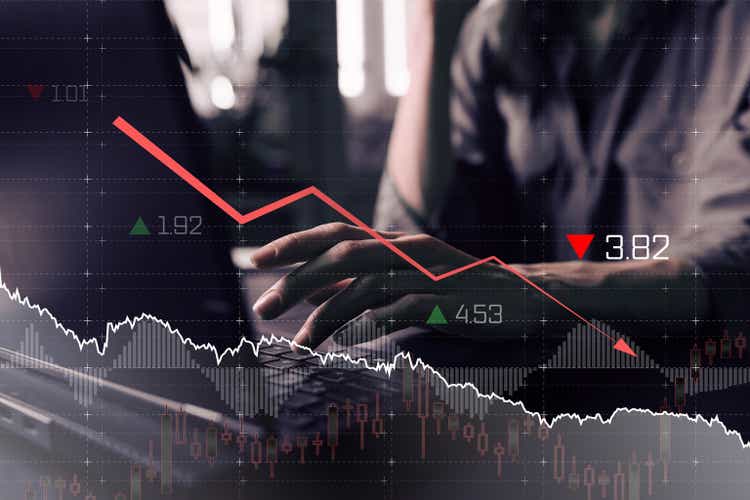Leonid Sorokin
As an odds addict, I often make bets prematurely. I am used to being wrong on individual choices but feel comfortable with my weighted choices.
The advantage of being wrong is learning from it. As a market-oriented analyst and manager, I equate a bear market with a recession.
Our clients and I feel more pain when surprised on the downside.
In November of ’21, stock price momentum started to slow. This was particularly noted in the growth-oriented Nasdaq market, which hit its historic high that month.
Also noted in carefully reading fourth-quarter comments from insightful CEOs was a slower quarterly rate of gain versus the prior year. This caution was also noted in early 2022 statements.
Much was made of “supply chain” problems, although it was focused almost exclusively on goods capacity limitations, not services.
To me, they left out the growing realization that there would be a shortage of competent people to hire. What really caught my eye in the recovery from the pandemic cutbacks was first- and second-line supervisors not being replaced.
My conclusion was that leading growth-oriented companies were likely to produce sub-par results for ’22. I did not fully appreciate the goods slowdown impacting the much larger economic services sector.
My mistake was labeling the forthcoming environment an oncoming recession. It was clearly derived from stock market price probabilities.
A recession is a much broader national and increasingly international phenomenon. The accepted definition of a recession results from top-down late-reporting data, with even later corrections.
Typically, by the time the academics identify a recession, it has already changed, often improved.
Politicians choose to focus on the gross economic numbers impacting voters most, not fully appreciating the indirect impact of market prices on the purchase patterns of almost all voters.
I was precisely wrong or premature in labeling the first half of ’22 a recession. Falling stock prices had a direct and indirect impact, probably hurting the average American by about 10%.
Current Data Bank of Concerns
- The yield on 2-year Treasuries is 3.398%, which is higher than both 10- and 30-year Treasuries. Historically this is an inflation predictor.
- Market analysts are concerned about reversal price patterns building in major indices, including the Dow Jones Transportation Index.
- Last week, 80.5% of prices fell on the NYSE but only 71.4% on the Nasdaq. The latter has been a better predictor than the former, probably because the Nasdaq has more professional investors.
- The American Association of Individual Investors (AAII) survey has a somewhat extreme 50% bearish reading for the next six months, often a contrary indicator.
Longer-Term Concerns
- One forecaster believes unemployment will hit 6% and inflation will not decline to 4% by 2024.
- Niall Ferguson of the Hoover Institute believes the “World is sleep walking”, similar to the 1970s but worse. Suggesting that instead going into a recession, we will experience a multi-year period of stagflation, with low growth, high inflation, and unemployment.
- My major concern is the lack of good leadership from our highest political and commercial elements throughout the world. Two examples are:
- Annual reports no longer stating employees are their most important asset. (When I sold our data business to Reuters, I told them our most important assets were our clients and our people, not our best available data.) This personality-focused leadership is an important contributor to the growth of unions, which is not positive for customers and shareholders.
- The war in Ukraine has demonstrated what I learned in the US Marine Corps, that well-led small units can effectively beat a larger force relying on massed manpower.
Question: How different do you think 2024 will be than today, and are you structuring for it?
Editor’s Note: The summary bullets for this article were chosen by Seeking Alpha editors.


Be the first to comment